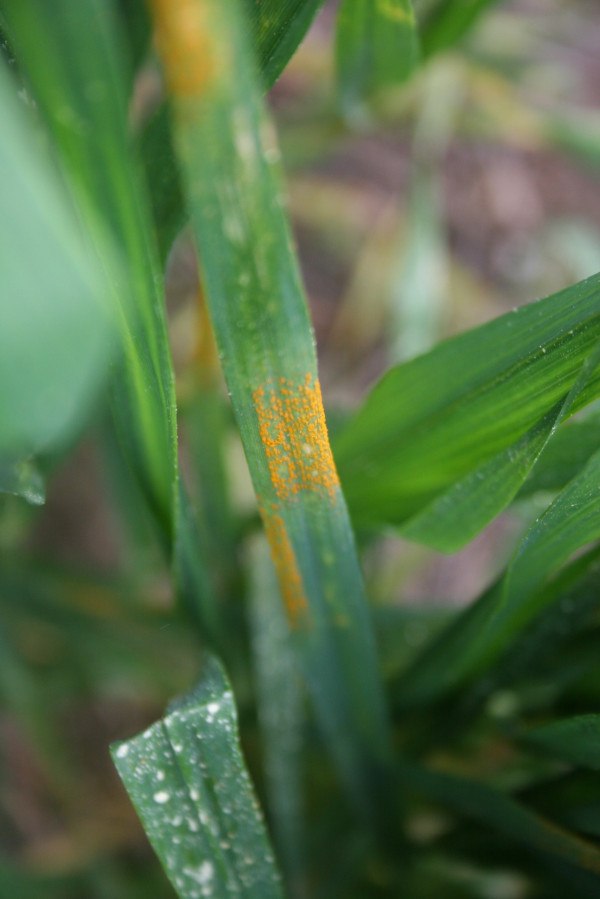Farmers are being encouraged to look out for signs of disease in field crops coming into spring and take action to minimise the impacts on their crops.
Agriculture Victoria senior cereal pathologist, Dr Mark McLean, said diseases in cereal and pulse crops in Victoria were observed earlier than usual this season due to the wet conditions.
“We’ve so far had reports of powdery mildew and stripe rust in wheat, Ascochyta blight in lentils and bean, and Botrytis grey mould/chocolate spot in bean, lentil and vetch,” he says.
“Given the wet conditions, and the outlook for a wetter than average couple of months ahead, growers and advisers are encouraged to inspect and monitor crops closely for diseases.
“Proactive disease management with fungicide is warranted under these conditions to avoid crop losses.”
Stripe rust has been found in many wheat crops in the Mallee and Wimmera, a good month to two months before it would normally be detected. It can be controlled with a well-timed fungicide application soon after detection, with a follow up application four to five weeks later, if needed.
“Stripe rust and powdery mildew are most damaging in seasons like this when they appear early. In such seasons, timely fungicide sprays are required in at risk varieties,” Dr McLean said.
Agriculture Victoria senior pulse pathologist, Dr Joshua Fanning, said farmers should also monitor pulse crops for Ascochyta blight.
“Ascochyta blight can result in reduced grain yield and quality if it is uncontrolled and conducive disease conditions continue. “
“The early infection of Ascochyta blight in pulse crops will result in a higher chance of pod infection later in the season if rainfall continues. This can lead to seed discolouration, sometimes resulting in discounted prices or grain being rejected by some buyers,” he said.
Botrytis grey mould (BGM), also known as chocolate spot, has been reported in bean, lentil and vetch crops.
It can develop rapidly given the right weather conditions and requires early intervention to minimise damage to crops.
“We’re encouraging growers to be alert to evidence of these diseases emerging earlier in the season than usual, to check the disease ratings of their varieties, and to take action to avoid crop losses or damage,” Dr Fanning added.
















